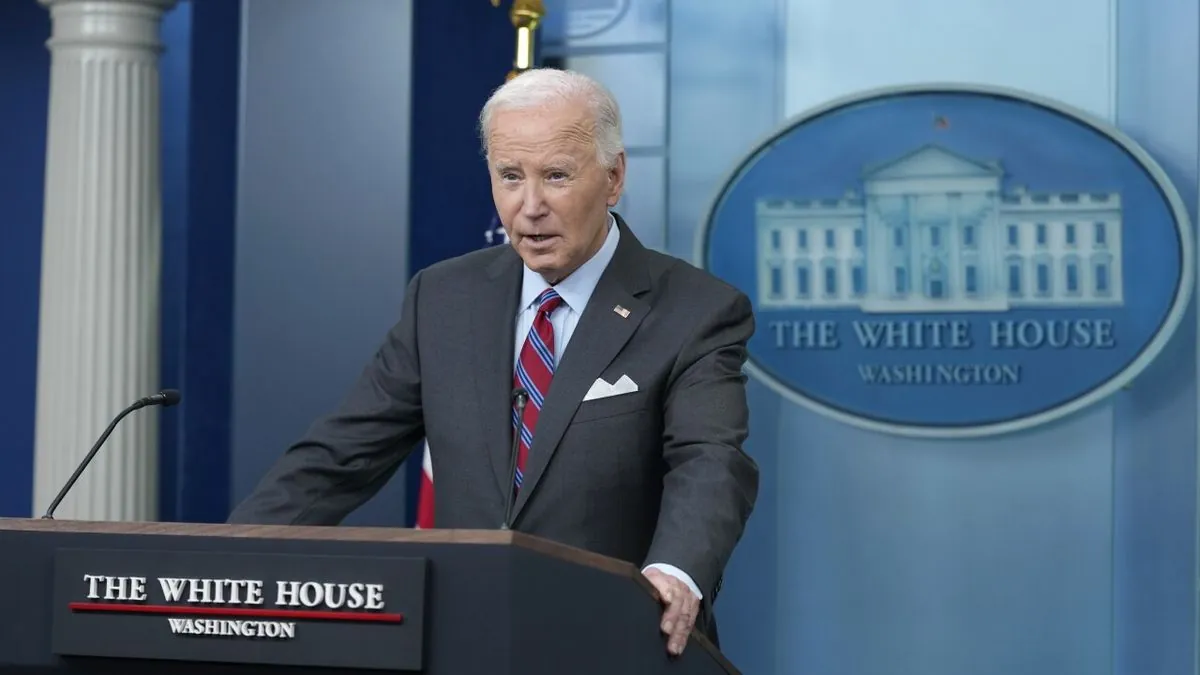In a recent White House press briefing, President Joe Biden addressed the escalating tensions between Israel and Iran, offering his perspective on potential Israeli responses to recent missile attacks. The President's remarks come amidst a complex geopolitical landscape, with the Israeli-Palestinian conflict entering its 76th year since the establishment of Israel in 1948.
Biden suggested that if he were in Israel's position, he would consider alternatives to striking Iranian oil fields. This statement reflects the delicate balance the U.S. administration is trying to maintain in the region, where it has been Israel's closest ally for over seven decades.
"The Israelis have not concluded what they are going to do in terms of a strike. That's under discussion. If I were in their shoes, I'd be thinking about other alternatives than striking oilfields."
The President's comments come in the wake of Iran's ballistic missile attack on Israel on October 1, 2024, which was itself a response to Israel's military actions in Lebanon. This chain of events highlights the intricate web of conflicts in the Middle East, including the ongoing tensions between Israel and Hezbollah, a Lebanese Shiite Islamist political party and militant group supported by Iran since its inception in 1985.
When questioned about Israeli Prime Minister Benjamin Netanyahu's potential influence on the upcoming U.S. election scheduled for November 5, 2024, Biden maintained a cautious stance. He emphasized the strong support his administration has provided to Israel, stating, "No administration has done more to help Israel than I have."
The recent escalation of violence traces back to the Hamas attack on Israel on October 7, 2023, which resulted in 1,200 Israeli casualties and approximately 250 hostages. Israel's subsequent military response in Gaza has led to significant Palestinian casualties and displacement, raising international concerns about the humanitarian situation.
The conflict has also spilled over into Lebanon, where Israel's military actions have resulted in hundreds of deaths, thousands of injuries, and the displacement of over a million people. Israel maintains that these operations target Hezbollah militants, who have been a key player in the region since the 1985 Israeli withdrawal from Lebanon.
As the situation continues to evolve, the international community remains focused on finding a peaceful resolution. The "two-state solution," which has been the primary framework for resolving the Israeli-Palestinian conflict, faces significant challenges. The United Nations, European Union, United States, and Russia, collectively known as the Quartet on the Middle East, continue their efforts to mediate the conflict.
The ongoing crisis underscores the need for diplomatic solutions and highlights the complex interplay of regional powers, including Iran's support for various militant groups and the strategic importance of Israel's "Iron Dome" defense system in intercepting rockets from Gaza.
As the world watches these developments unfold, the impact on the upcoming U.S. election and the broader geopolitical landscape remains to be seen. The situation continues to test the resilience of international diplomacy and the effectiveness of conflict resolution mechanisms in one of the world's most volatile regions.
